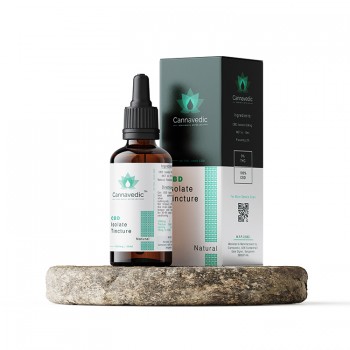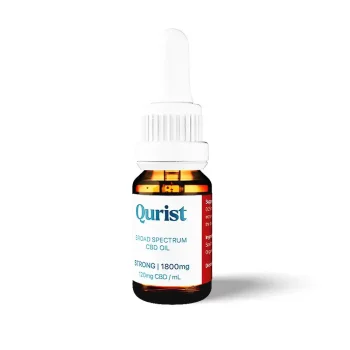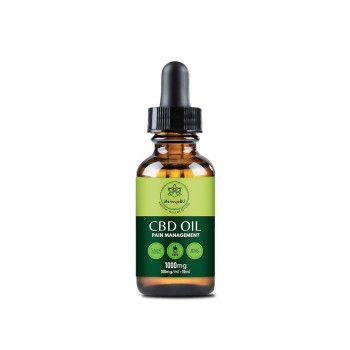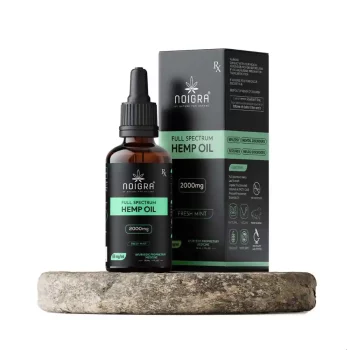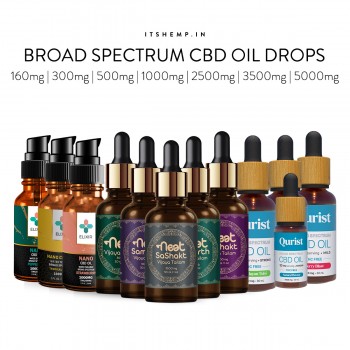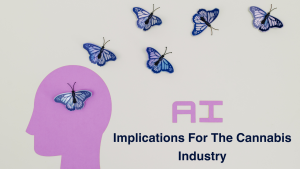What can CBD oil do for Alzheimer’s? CBD oil is a completely plant-based remedy for managing and reducing behavioural and psychological symptoms associated with Alzheimer’s disease. It is derived from the cannabis plant but is non-intoxicating in nature.
This article talks about how CBD oil helps with Alzheimer’s followed by a guide to where to buy CBD oil for Alzheimer’s in India.
Outline
What is Alzheimer’s?
Symptoms of Alzheimer’s
Progression of Alzheimer’s
–Mild/Early-stage Alzhiemer’s
> Buy CBD Oil for Mild Alzheimer’s in India
–Moderate Alzheimer’s
> Buy CBD Oil for Moderate Alzheimer’s in India
–Severe/Late-stage Alzheimer’s
> Buy CBD Oil for Severe Alzheimer’s in India
How can CBD Oil help with Alzheimer’s?
Potential Benefits of CBD Oil for Alzheimer’s
Types of CBD Oil for Alzheimer’s in India
How to use CBD Oil for Alzheimer’s?
CBD Oil for Alzheimer’s in India | Dosage Guide
CBD Oil for Alzheimer’s in India | FAQs
What is Alzheimer’s?
Alzheimer’s disease is a progressive neurologic disorder that causes the brain to shrink and brain cells to die. It is the most common cause of dementia—a continuous decline in thinking, behavioural, and social skills that affect a person’s ability to function independently.
Alzheimer’s disease (AD) usually begins with memory loss and progresses to leading to the loss of the ability to carry on a conversation and respond to the environment. It affects the parts of the brain that control thought, memory, and language.
Age is the best-known risk factor for Alzheimer’s disease. Changes in the brain can begin years before the first symptoms appear.
People with AD may have trouble remembering things that happened recently or the names of the people they know.
Symptoms or Warning Signs of Alzheimer’s
AD is a brain disease that causes a slow decline in memory, thinking, and reasoning skills. There are 10 common warning signs and symptoms of Alzheimer’s.
- Memory loss that disrupts daily life: involves forgetting recently-learned information or important dates and events, asking the same question over and over, increasingly needing to rely on memory aids.
- Challenges in planning or solving problems: trouble following a familiar recipe or keeping track of monthly bills.
- Difficulty completing familiar tasks: trouble driving to a familiar location, organizing a grocery list, or remembering the rules of a favourite game.
- Confusion with time or place: losing track of dates, seasons, and the passage of time. Sometimes, patients with AD may forget where they are or how they got there.
- Trouble understanding visual images or spatial relationships: problems in judging distance, determining colour or contrast, reading road signs, etc.
- New problems with words in speaking or writing: trouble following or joining a conversation, struggling with vocabulary, using the wrong name for a familiar object (e.g., calling a ‘watch’ a ‘hand-clock’).
- Misplacing things and losing the ability to retrace steps: misplacing things and being unable to go back over their steps to find them.
- Decreased or poor judgement: making poor judgement when dealing with money or paying less attention to grooming or keeping themselves cleaned.
- Withdrawal from work or social activities: difficulty in holding pr following conversations may cause a patient to withdraw from hobbies, social activities, or other engagements.
- Changes in mood and personality: patients may become confused, suspicious, depressed, fearful, or anxious.
The first symptoms of Alzheimer’s vary from person to person. Memory problems are typically one of the first signs of cognitive impairment related to AD.
Progression of Alzheimer’s Disease
Alzheimer’s disease progresses in several stages—preclinical, mild (or early-stage), moderate, and severe (or late-stage).
Symptoms of Mild/Early-Stage Alzheimer’s Disease
In this stage, a person may seem to be healthy but has more and more trouble making sense of the world around. Problems can include:
- Memory loss
- Loss of spontaneity and sense of initiative
- Poor judgement leading to bad decisions
- Taking longer to complete normal daily tasks
- Trouble handling money and paying bills
- Wandering and getting lost
- Repeating questions
- Losing things or misplacing them in odd places
- Mood and personality changes
- Increases anxiety or aggression or both
Symptoms of Moderate Alzheimer’s Disease
This stage requires more intensive supervision and care. Problems include:
- Increased memory loss and confusion
- Inability to learn new things
- Difficulty organising thoughts and thinking logically
- Difficulty with language and problems with reading, writing, and working with numbers
- Problems coping with new situations
- Shortened attention span
- Difficulty carrying out multistep tasks like getting dressed
- Hallucinations, delusions, and paranoia
- Inappropriate outbursts of anger
- Impulsive behaviour (undressing at inappropriate times or places or using vulgar language)
- Repetitive statements of movements
- Restlessness, anxiety, agitation
Symptoms of Severe/Late-Stage Alzheimer’s Disease
In severe Alzheimer’s disease, patients find it difficult to communicate and are completely dependent on others for their care. Symptoms include:
- Weight loss
- Inability to communicate
- Seizures
- Skin infections
- Increased sleeping
- Difficulty swallowing
- Groaning, moaning, and/or grunting
- Loss of bowel and bladder control
How does CBD Oil help with Alzheimer’s?
CBD is a naturally-occurring chemical compound present in the cannabis plant. It is non-intoxicating in nature and offers a plethora of medicinal benefits to the human body. The therapeutic properties of CBD make it a good natural, plant-based remedy for a number of health conditions such as pain, anxiety, arthritis, depression, insomnia, etc.
A handful of studies show us that the use of CBD (with or without other cannabinoids) can decrease the behavioural and psychological symptoms of Alzheimer’s Disease. The results of a 2019 study implied that CBD can prove to be useful for treating and preventing Alzheimer’s disease.
While there is no cure for Alzheimer’s, CBD can be helpful in relieving mental symptoms such as loss of sleep, anxiety, depression etc. associated with the disease.
Potential Benefits of CBD for Alzheimer’s Disease
CBD has anti-inflammatory, anti-convulsant, and anti-epileptic properties. For Alzheimer’s disease, it may be helpful in providing the following benefits:
- Reduced Stress Levels: CBD has anti-anxiolytic properties and works as a relaxant to reduce stress. Regular use of CBD oil can reduce anxiety, agitation, and restlessness in patients with Alzheimer’s disease.
- Better Cognitive Functioning: CBD and other cannabis compounds work together to improve the efficiency of the basic cognitive processes of the body such as attention, executive functioning, and working and episodic memory.
- Reduced Seizures: Patients of late-stage Alzheimer’s Disease can experience frequent seizures. CBD oil has anti-epileptic properties that can reduce the frequency and intensity of seizures and tremors. CBD also helps in controlling jitters and shivering.
Types of CBD Oil for Alzheimer’s in India
Isolate CBD Oil
Isolate CBD oils contain only and only CBD. These are the purest form of CBD. Here, the extract is processed to eliminate the other naturally-occurring chemical compounds such as terpenes, flavonoids, cannabinoids other than CBD, etc.
CBD isolates are the safest way to consume CBD, especially for beginners. In these types of CBD extracts, the therapeutic benefits of CBD can be experienced in isolation.
Typically, CBD isolates do not have any taste or odour. However, some products may contain additional taste or flavouring. CBD isolates do not contain THC and are therefore, non-intoxicating in nature.
In comparison to the other two types of extracts, CBD isolates are less potent and might not be as effective in cases of severe epileptic seizures.
-
Broad Spectrum CBD Drops₹1,999.00 – ₹9,999.00
Broad-spectrum CBD Oil
Broad-spectrum CBD oil contains CBD in addition to other cannabinoids, terpenes, and flavonoids, except for THC.
In broad-spectrum CBD oils, the extract is processed to eliminate THC, the high-causing compound, keeping all the other naturally-occurring compounds intact.
The idea behind this process is to increase the potency of CBD oil while eliminating the risk of intoxication at the same time.
In the case of broad-spectrum CBD oils, the medicinal benefits of each individual cannabinoid, terpene, flavonoid, etc. combine with each other and give a more wholesome benefit to the body.
Broad-spectrum extracts do not contain THC and are therefore, non-intoxicating in nature.
How to use CBD Oil for Alzheimer’s?
CBD Oil for Alzheimer’s in India can be used in 2 different ways:
Sublingual Consumption
Sublingual consumption refers to placing the CBD drops directly underneath the tongue and letting them absorb for 30-40 seconds before swallowing.
It is the fastest and most direct method to experience the benefits of CBD. Through sublingual or oral consumption, CBD directly enters the bloodstream in 5-7 minutes, and the pain-relieving effects can be felt within 7-10 minutes of consumption.
The effects remain in the body for 2-3 hours.
Caution: While using CBD oil sublingually, ensure to not touch the tip of the dropper to the tongue or any internal of the mouth. Careless contact may induce bacteria to the bottle of CBD oil, causing degradation of the product.
Addition to Food
A common way to use CBD oil is to add it to our everyday food and drink items like salads, smoothies, cereals, shakes, etc. This method helps cover the strong taste and smell of CBD oil.
Through this method, the effects of CBD can be experienced within 1 hour of consumption. When CBD oil is consumed through food, it passes through the liver and the digestive system before entering the bloodstream. This process takes 40-50 minutes.
The effects of CBD remain in the body for 4-5 hours.
Mixing CBD oil with food is a good way to use CBD regularly to improve overall health and decrease the symptoms of Alzheimer’s.
CBD Oil for Alzheimer’s in India | Dosage Guide
Administering regular dosage is a very important part of using CBD oil for Alzheimer’s. CBD oil comes in a glass bottle with a built-in dropper in the cap.
This dropper has markings in mL which help measure each individual dosage.
The amount of CBD oil you should consume depends on a number of factors such as body weight, individual body chemistry, the concentration of CBD, and the severity of the medical condition being targeted.
Ideally, it is recommended to start with the minimum possible dosage and increase it gradually depending on the body’s response.
How to Calculate the Dosage for CBD Oil?
To calculate the dosage of CBD oil, we need to consider the strength and the quantity of the extract.
The quantity represents the total amount of oil that is present in a bottle and strength represents the amount of CBD in that oil. Quantity and strength are measured in mL and mg respectively.
If you have a 10mL bottle of 1000mg, then 1mL will have 1000/10=100mg of CBD.
So, if your dosage is 50mg of CBD per day, you need to fill half the dropper (up to the 0.5mL mark).
Side Effects of CBD Oil
Although CBD oil is generally safe and well-tolerated for people of all ages, it may cause side effects such as nausea, changes in weight and appetite, dizziness, dry mouth, and diarrhoea. If you experience any of these symptoms, keep yourself hydrated and wait for them to pass.
However, if the side effects begin to worsen, stop using CBD immediately and consult a medical professional.
CBD Oil for Alzheimer’s in India | FAQs
Can CBD Oil help Alzheimer’s Patients?
Recent studies show that CBD is effective in reducing or removing the impact of inflammation, oxygen build-up, and brain cell decline in the body. CBD oil can also increase the level of protein cells that eliminate dead cells and plaques in the brain with Alzheimer’s, improving both motor and memory function.
Does CBD affect memory in Alzheimer’s patients?
Studies reveal that CBD can help remove dementia thus strengthening memory and increasing the connection between the brain cells. CBD oil can improve memory function for those struggling with Alzheimer’s and dementia.
Is CBD safe for patients with Alzheimer’s?
CBD is a generally safe and well-tolerated compound. It does not have any fatal side effects. However, the use of CBD may produce some mild side effects such as nausea, dry mouth, dizziness, and indigestion.
Where to buy CBD oil for Alzheimer’s in India?
You can buy CBD oil for Alzheimer’s in India online through platforms like ITSHEMP, which deliver CBD oil directly to your doorstep. ITSHEMP has a wide range of isolate, broad-spectrum, and full-spectrum CBD oil from Indian and international brands.








